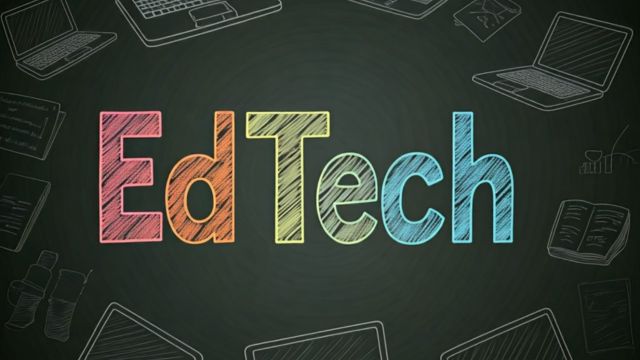Technology is transforming every element of our life in the twenty-first century, including learning. EdTech companies are significantly helping to close the gap in developing nations, where conventional educational infrastructure usually lags behind. These businesses are not only improving access to high-quality education but also transforming student learning and interactions with knowledge.
1. Addressing Educational Inequality
Particularly in rural and distant places, the lack of access to quality education presents one of the most major obstacles in developing nations. Using digital tools and online learning environments, EdTech firms are tearing down these obstacles.
- Affordable Online Classes: Platforms like BYJU’s (India) and uLesson (Nigeria) offer affordable educational content that reaches students regardless of geographical constraints.
- Free Learning Resources: Organizations like Khan Academy provide free video lessons and exercises in multiple languages, offering inclusive education to underprivileged students.
- Mobile Learning: In regions where smartphones are more accessible than computers, mobile apps like M-Shule (Kenya) provide curriculum-based learning through SMS and web apps.
These EdTech startups enable students from low-income backgrounds to access once out-of-reach quality education by offering scalable and reasonably priced learning solutions.
2. Enhancing Teacher Training and Support

Lack of sufficiently qualified instructors is an ongoing issue in many developing nations. EdTech firms are tackling this by providing digital platform tools and teacher training courses.
- Teacher Training Platforms: Companies like Teach2030 offer mobile-based training modules for teachers to develop modern teaching skills.
- Peer Learning Networks: Platforms like TeachersPayTeachers enable educators to share resources and teaching strategies, fostering a collaborative learning environment.
- Classroom Management Tools: Tools like Google Classroom and Edmodo support teachers in organizing lessons, distributing assignments, and communicating with students, making remote teaching more manageable.
Such programs not only raise the caliber of instruction but also provide teachers with the means to fit digital learning surroundings.
3. Making Learning Personalized and Interactive
While conventional classroom environments sometimes fail to accommodate different learning styles, EdTech systems tailor teaching using data-driven techniques.
- Adaptive Learning Technologies: Platforms like Smart Sparrow and DreamBox Learning analyze students’ performance in real-time and adjust content accordingly.
- Gamification: By incorporating game elements, apps like Duolingo make language learning more engaging, boosting student motivation.
- Interactive Content: Multimedia-rich lessons, including videos, quizzes, and simulations, help students grasp complex concepts more efficiently.
Customized learning helps those who would find difficulty in conventional environments by allowing pupils to learn at their own pace, therefore addressing various learning demands.
4. Building Digital Skills for Future Employment
A workforce with digital skills is being increasingly sought for in developing nations. Through their vocational training and digital literacy courses, EdTech firms are closing this skills gap.
- Skill Development Platforms: Initiatives like Coursera for Governments and Udacity Nanodegree Programs provide training in coding, data analysis, and digital marketing.
- Job Readiness Programs: Platforms like Andela (Africa) offer training in software development and connect learners with remote work opportunities.
- Micro-Credentials: Companies like edX offer certification courses that enhance employability, providing practical skills aligned with job market demands.
EdTech systems enable students to acquire digital skills, therefore increasing their competitiveness in the worldwide employment scene.
5. Bridging the Digital Divide
EdTech presents difficulties with internet access and digital literacy even as it has the ability to revolutionize education. Many underdeveloped nations still lack consistent internet infrastructure, therefore restricting the availability of online learning.
- Offline Learning Solutions: Companies like Kolibri and Ubongo provide offline content access, ensuring that students in areas with poor connectivity can still benefit.
- Community Learning Hubs: Setting up digital learning centers equipped with tablets and internet connections allows communities to participate in online education.
- Government and NGO Collaborations: EdTech companies are increasingly partnering with governments to improve digital literacy through community programs.
EdTech companies may greatly close the digital divide by giving offline solutions and community involvement top priority.
6. Challenges and the Way Forward
Notwithstanding their achievements, EdTech businesses have challenges, including:
- Infrastructure Gaps: Limited internet access and power supply issues.
- Language Barriers: Content not being available in local languages.
- Digital Literacy: Lack of digital skills among students and teachers.
Cooperation among governments, businesses, and non-profit groups is crucial if one wants to overcome these obstacles. Making localized content and infrastructure investments will help EdTech to keep having a beneficial influence.
Conclusion
Leading edge EdTech companies are driving educational change in underdeveloped nations. They are producing a new generation of students ready to flourish in the digital age by making education more accessible, tailored, and skill-oriented. Maintaining this good shift, though, depends on solving issues of infrastructure and digital inclusiveness.
EdTech’s ongoing development promises to help to close educational gaps and empower students from all backgrounds. Those nations that welcome this change will surely have a better educated, talented, future-ready population.
Empower Your Future with the Latest Government Schemes and Programs! Stay updated with valuable information on education, digital literacy, financial aid, and more. Visit DigitalIndiaMIB.com to explore government initiatives, private schemes, and global opportunities that can transform your life. Start your journey to a better tomorrow today!
